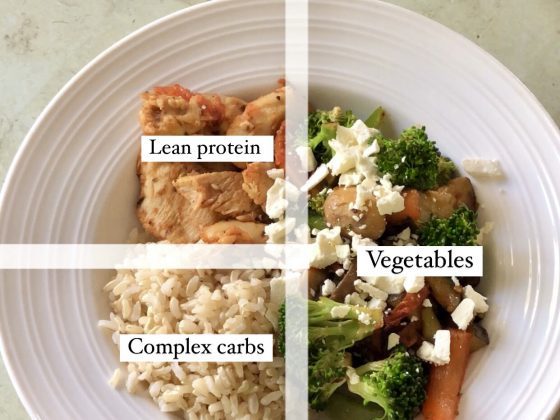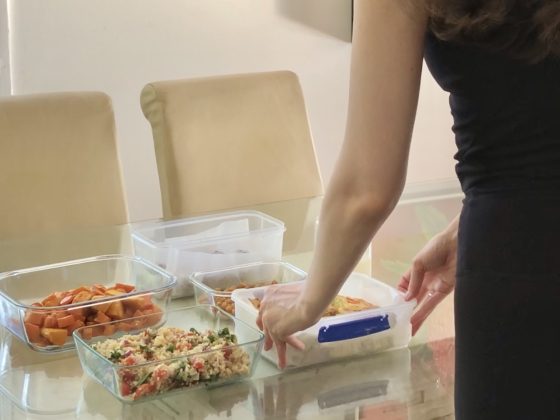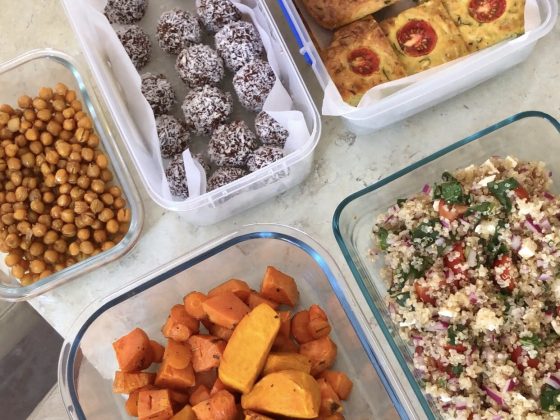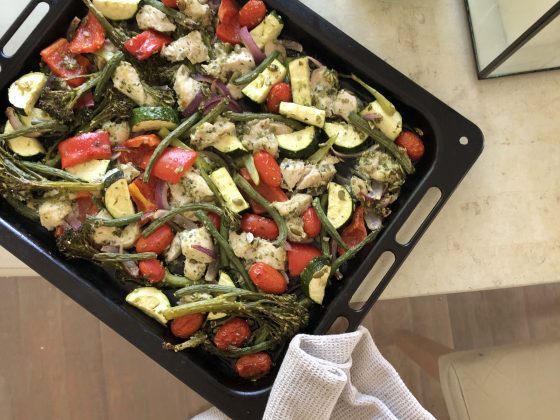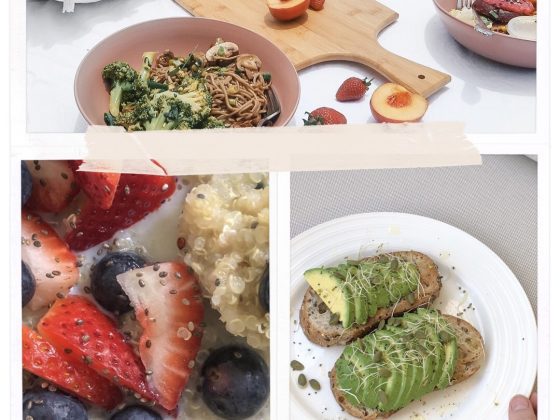
Let’s talk about bloating. You know, that stretch in our stomach after eating a delicious meal and the sudden urge to discretely unbutton our jeans under the table.
Sound familiar?
That’s because it happens to all of us; in fact, it’s a normal part of eating and digesting our food! After you eat, your stomach breaks down food into tiny pieces so that it can flow through to the small intestine where most of the digestive processes takes place. The breakdown of carbohydrates and the fermentation of dietary fibre may produce gas, which expands the gastrointestinal tract and causes bloating. This bloating will typically subside after some time, or after gas has passed.
However, it’s when your symptoms increase and cause regular distress that we may need to consider the food and lifestyle tips below. It’s also important to mention that severe bloating, especially alongside other signs of gastrointestinal distress, can be caused by food intolerances (e.g. lactose intolerace or FODMAPs), Coeliac Disease, Inflammatory Bowel Disease, Small Intestinal Bacterial Overgrowth, Endometriosis or PCOS. If you feel this could be you, I recommend checking in with your GP.
Tips to manage bloating
The best place to start is by doing a general ‘tidy up’ of your diet.
Takeaway, eating on the go, excessive drinking and regularly consuming high fat and sugary foods can disrupt your gut health and digestion. Start introducing some healthier choices by cooking more, including more veggies, building balanced meals and staying hydrated.
If that doesn’t do the trick, we can then start looking at specific dietary changes. I recommend trying these one at a time, so you can see what makes a difference. Attempting too many at once is not only overwhelming, but it makes it difficult to see what actually worked for your body.
Eat slower and chew your food well.
It sounds all too simple, but this can make a big difference. Gulping down your food means you’re more likely to swallow air which can contribute to bloating. Since bloating involves a build-up of gas (most commonly due to the natural break down of food that we eat), swallowing air will just add to this.
So, if you can help it, carve out some time for your meals. I also recommend looking into ‘mindful eating’ to see if this may be helpful for you.
Don’t use a straw.
Similarly to the above, using a straw can draw in more air and create more gas. Instead, sip your fluids slowly.
Reduce your intake of carbonated “fizzy” drinks.
You’ve probably already guessed it at this point – the more bubbles, the more gas!
Eat smaller portions.
Eating a large amount of food quickly, or eating until we are uncomfortably full can make our bloating worse. Try reducing the portion sizes of your meals. If you need a little help in this department, check out my post on building a balanced meal or this resource sheet by Baker Institute.
Be mindful of fatty foods.
Foods that are high in fat slow down the rate at which food moves through the digestive tract and may result in bloating for some people. If this is you, consider reducing your portions of fatty foods, particularly those rich in saturated and trans fats.
Be mindful of sugar alcohols.
Sugar alcohols are sweeteners with names that often end in “ol” such as sorbitol, xylitol and mannitol. They’re typically found in ‘sugar-free’ products, such as sugar-free mints or diet coke. Eating too many may cause bloating in some people, so you may want to consider reducing your intake.
Are you lactose intolerant?
Lactose intolerance is a condition where someone does not produce enough enzymes to digest lactose, the sugar found in dairy foods. Symptoms of lactose intolerance can include nausea, bloating and diarrhea after drinking or eating foods high in lactose.
To determine whether you may be lactose intolerant, you can trial lactose free varieties of milk and see if that reduces your symptoms. Whilst cheese and probiotic-containing yoghurt is typically tolerated well by most people, you may also need to trial lactose free icecream.
If you struggle with constipation, look at fibre and fluid.
Constipation can cause a feeling of bloating itself by increasing the pressure in your gut, as well as make it more difficult to pass any gasses produced by your bacteria.
Both fibre and fluids can help to prevent constipation and keep things moving along through the gut. Slowly increase your fibre intake to the recommended 25-30g per day. Be sure to increase your intake slowly to prevent further digestive symptoms, as well as drink adequate amounts of water to help the fibre pass through more easily.
If increasing your fibre intake worsens your symptoms, you may need to be mindful of “windy” vegetables and resistant starches.
- Windy vegetables: cabbage, beans, lentils, broccoli, brussel sprouts and cauliflower.
- Resistant starches: cooked and cooled pasta and potato, chickpeas, freekeh and ripe bananas.
To learn more about fibre, check out this post by Dietitians Australia.
Note: Speak to your GP if you struggle regularly with constipation.
Exercise regularly.
Alongside fibre and fluid, exercise has also been shown to help food move through the gut more easily. I recommend starting by walking more, especially if you spend most days sitting down.

Include probiotics in your diet.
Amongst probiotics long list of health benefits, they also restore the balance of ‘good bacteria’ within the intestines and alleviate gas build-up or discomfort caused by an excess of harmful bacteria. If you want to incorporate probiotics in your diet, choose probiotic-rich foods such as yoghurts. Also be aware that whilst all yoghurts contain live bacterial cultures, not all yoghurts contain probiotics. Two of my favourite probiotic yoghurts include Vaalia and Activia.
Try adding linseeds into your diet.
Linseeds, also known as flaxseeds, are a great source of soluble fibre. Not only are they great for your overall health, but they have been shown to help relieve abdominal pain, constipation and bloating. Increase them slowly, starting with a teaspoon a day, and gradually work up to having 1-2 tablespoons a day. And of course, as with all fibre, be sure to increase your water intake also!
Manage stress.
Constant stress and anxiety can put our body in fight or flight mode, moving blood flow away from the digestive tract. Take some time before a meal to slow down and practice deep breathing to help get your body back to the rest and digest mode, allowing our food to be digested more effectively.
Keep a food diary.
As a Dietitian dealing largely with food intolerances and sensitivities, I love a food diary. A food diary is basically just a physical or online diary (e.g. the MySymptoms app) where you record the foods you have eaten each day along with any symptoms you’ve experienced. It’s a wonderful way to help identify any potential foods that may be triggering symptoms. If any particular foods are coming up as potential culprits, it may be worth talking to a dietitian to see whether you are indeed experiencing a food intolerance.
Again, just a friendly reminder that mild distention or bloating after eating is normal, and most people will experience this on a semi-regular basis. But if it’s starting to impact your day-to-day life, I hope these tips provide you with some relief and confidence. If you’d like extra support in this, feel free to get in touch for a one-on-one nutrition consult.
And if you’re bloating is severe and persistent, I recommend checking in with your GP first and foremost.

